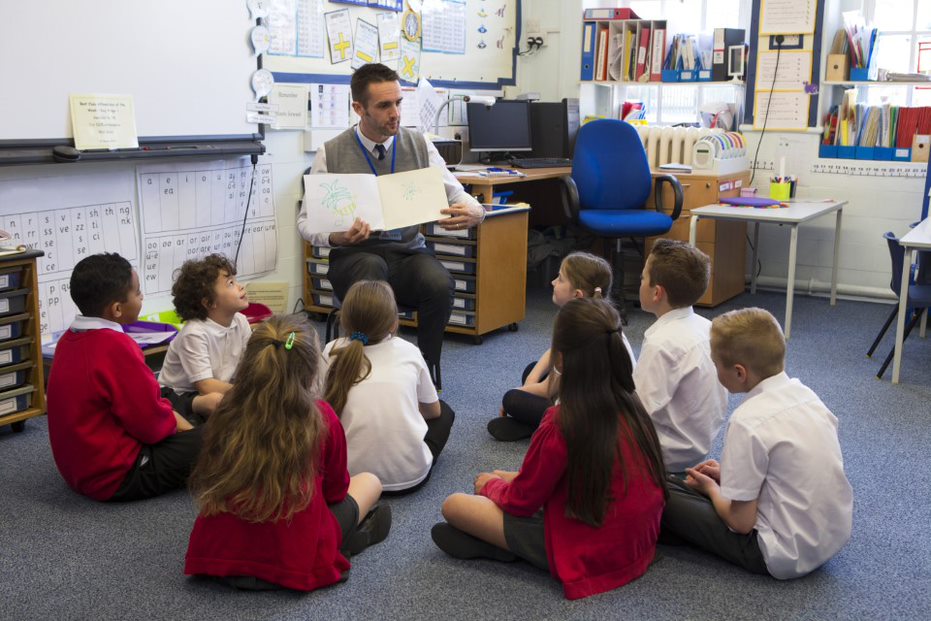Advice For Schools
A Recovery Curriculum: Ready to Progress?
A key part of the return to school is how we create the best environment, not only for pupils and staff but for all stakeholders in order to support mental wellbeing and to quickly re-establish supportive and responsive relationships.
As part of any wellbeing plan we must acknowledge that we are likely to need to re-emphasise wellbeing messages and be prepared to be adaptable and flexible.
This can be facilitated by gathering as much information as possible about the impact of Covid –19 and perhaps even recording it in a ‘Register of Significant Events’; an effective strategy used in Christchurch, New Zealand after the devastating earthquakes of 2016.
The process of recovery will be a long-term endeavour built upon positive everyday relationships and interventions, including time and space and, as necessary, engaging with specialist support from external, multi-agency partners.
Resources to help
There are already a number of resource and support mechanisms available including the #you’vebeenmissed campaign, hosted on the website of Birmingham Women’s and Children’s Hospital, which have provided support for parents, carers and professionals to help get everyone back to school and perhaps more importantly to help everyone cope as they return to the ‘new normal’.
In addition, the Education Endowment Foundation continues to provide a range of research-based guidance reports focused on priority issues, or themes such as:
- Improving Social and Emotional Learning in Primary Schools
- Special Educational Needs in Mainstream Schools
- Working with Parents to Support Children’s Learning
- Improving Behaviour In Schools
- Metacognition and Self-Regulated Learning
In a recent article Amanda Speilman (6.07.20) confirms our shared aim i.e. helping this generation of children and young people make up for lost time and get the high-quality education they deserve.
Assessment and Revision
In our aim to reconnect with learners and to help learners to reconnect and recover in terms of learning and progress we will need to ascertain what our pupils know (or have remembered) and what needs to be re-taught.
This should be done through low stakes revision or assessment tasks which focus not on everything, but the most important elements of the prior learning or the necessary pre-requisite knowledge or skills in order that we can maximise learning and progress.
Our approach to teaching and learning may need to be reassessed and/or adjusted since this must be focussed and needs led – a curriculum which is ‘the servant of the child and not it’s master’ – much more than curriculum coverage.
So how can we make the best use of time, in this challenging situation, to maximise learning?
1. Keep our expectations high and in line with the age and stage of learners
This requires us to balance new learning with the revision of key areas or performance indicators and to informally gauge knowledge and skills through open-ended, fresh, exploratory tasks.
Quality first teaching is preceded by quality first planning and in striving for quality the best use of great assessment for learning is a must.
2. Careful in-school assessment (AfL)
Assessment for learning rather than summative testing requires us to know where the learner is, where the learner is going and how they will get there.
This well-known and well-used approach reflects the familiar cyclical process of teaching and learning: ‘assess, plan, do, review’.
AfL should provide meaningful feedback, not least to the teacher, who can then ensure that future learning moves all pupils closer to their target and within their ‘Zone of Proximal Development’.
3. Session timings
Lessons may need to be shorter or ‘chunked’ in order to re-teach how children learn (and focus) in the school situation – very different to home school learning and virtual classroom experiences.
We want to find out what they know and can do but equally we want to ensure that we remove any associated pressure or stress, particularly for our most vulnerable learners.
4. Retrieval practice
Retrieval practice is intended to bring learning to mind and can help pupils to remember (know), understand and transfer learning.
This can take many forms…
- Memory quiz e.g. Multiple choice, Short answer questions
- ‘Free recall’ e.g. write everything you know about
- Visual representation e.g. Concept map, Design a poster
…and can prove to be motivational and diagnostic, informing next steps including revision or re-teaching as necessary.
Engaging pupils with retrieval practice is effective.
5. ‘Simmering’
Simmering or keeping learning ‘on the boil’ is a key approach that became well used with the implementation of the national numeracy strategy.
These are usually short activities such as…
- Jumbled up letters/root words – make as many words as you can.
- A number – make in as many ways as possible/ if I know… what else do I know?
- Or the commonly used ‘5 a day’ questions to be answered
…and might be set at the beginning of a lesson or at any time to focus attention when pupils are settling or returning to the classroom through the day.
6. Setting pupils up for success
Strategies such as ‘think-pair-share’ can usefully underpin the ‘no hands’ approach to engaging and eliciting a response from all pupils.
This is a metacognitive technique that encourages and allows for individual thinking, collaboration, and presentation in the same activity.
Pupils must first think for themselves to come up with an answer on their own, then come together in pairs (or small groups) to work together to confirm, solve a problem or answer a question.
This gives pupils time to rehearse their response in readiness for sharing their discussion and decision with the group/class.
Collecting and exploring all or many, pupil responses as part of the learning process can help to remove the stigma of error.
It provides an opportunity to explain wrong answers, and to help pupils to see mistakes as growth experiences.
7. Using wrong answers
This has a great benefit in class and in different ways.
Pupils (and teachers?) need to learn it is ok to make a mistake and that this is vital and good to learn from being wrong. It encourages pupils to take a chance and be more willing to try.
At the same time, looking for root causes and sources of mistakes provides teachers (and learners) with the opportunity to identify misconceptions and to develop conceptual (rather than sometimes a procedural and superficial) understanding.
8. Pre-teach
Key concepts and skills can be taught in advance. This can serve to reinforce central concepts and link knowledge thus making learning relatable.
The pre-teaching of language and vocabulary, added to a word bank or working wall is an extensively used strategy.
This is similar to the idea in mathematics of the CPA approach; where this works well teachers provide a multi-sensory: auditory, kinaesthetic and visual experience for the learner through which more effective learning can take place.
9. Model
A key component of great teaching is the explicit modelling of processes so that pupils learn how to adapt and apply their knowledge.
This includes making explicit your thought processes – thinking out loud – as you unpick a problem and make choices, usefully verbalising the options and thoughts about ways forwards – what if…, I know…, if I…, I could…, making revisions, additions etc.
Take care though, as sometimes pupils stick closely to the model because that’s what they think you want rather than taking the learning and thinking for themselves!
We’re also very used now to showing What A Good One Looks Like (WAGOLL) or even WADEOLL (What A Diamond Encrusted One Looks Like!). Do we make it explicit/share our understanding of why these are good (or sometimes why are they not good) and share sufficient exemplars to demonstrate the range of WAGO(could)LL?
10. Feedback
And finally, don’t forget to seek feedback from the pupils themselves. Feedback can be verbal. ‘Tell me one thing you’ve found tricky this lesson/today/this week’ as well as written.
Gathering feedback on how well pupils have learned a topic is important in understanding pupils’ strengths, weaknesses and progress and in enabling teachers to address any misunderstanding and provide the right level of challenge in future lessons.
Summary
Prime Minster, Boris Johnson has said it was “vital” that pupils received catch-up on the education they have lost as a result of school closures and stated that teachers should be drawing up a catch-up plan for each of their pupils.
DfE has confirmed (20 July) that allocations from the £650 million catch-up premium – part of the Covid catch-up plan – will be based on the number of pupils a school has.
As a leader in your school you need to be having the conversation with all stakeholders to answer:
- How will your school identify need and make best use of this funding?
- How will you motivate leaners to re-engage positively with their learning journey?
If you require individual support on your school’s approach to the recovery curriculum and the return of pupils, then please email hello@servicesforeducation.co.uk
Could Interventions Be the Answer?
Time-scaled numeracy and literacy interventions could provide part of the solution.
Interventions provide teachers and/or teaching assistants with subject knowledge and pedagogical understanding which, after an initial pupil diagnostic assessment, enables them to adapt lessons to best meet the needs of learners. They are carefully designed to ensure a whole school approach to intervention.
Mathematics or Reading Interventions
At Services For Education, we work with Edge Hill University and Oxford University Press to provide a variety of different Maths and English interventions, including the FirstClass@Number Programme; the positive impact of which has been evidenced by EEF.
We know that great teaching is “the most important lever schools have to improve outcomes for their pupils” and the guidance clearly confirms the importance of high-quality professional development in the year ahead, specifically mentioning interventions.
Every school will have different requirements for next year, and no one approach is going to work for them all.
Informed by the research, Senior Leaders will be in a strong position to know how to make sure professional development and intervention is effective, reliable and provides the necessary support for those who need it most.
Browse and book our intervention courses here or email us at hello@servicesforeducation.co.uk to find out more.
Nuffield Early Language Interventions
Schools may also access the fully funded Nuffield Early Intervention (NELI) this academic year for reception pupils. This programme has been successfully trialled by the EEF . Teachers and Teaching Assistants would receive a newly developed online training programme in early January, following the identification of target pupils and distribution of the programme materials in late autumn.
The Department for Education are registering schools’ interest now. Schools who express an interest will be contacted with further details during the first half of the autumn term. In the event of over-subscription, schools will be prioritised based on their percentage of FSM eligibility.
About the Author – Denise Harris – Adviser, Services For Education
Denise has 25 years’ experience as a qualified teacher (B.Ed, Hons) working in schools and an Education Action Zone. She became a local authority primary consultant in 2003 with a focus on mathematics and assessment. In this role she gained accreditation as an Every Child Counts (ECC) Teacher leader and was awarded an MA in Early Mathematics from Edge Hill University.
She has also successfully completed the NCETM Primary Professional Development Lead Support Programme gaining recognition as being accredited and up-to-date on current thinking on national mathematics priorities.
The focus of her current role is the management and delivery of the statutory assessment contract for moderation and monitoring on behalf of Birmingham LA. Through this role, and as an active member of AAIA, she works closely with other moderation managers both locally and nationally.


 Lucie Welch – Adviser, Services For Education
Lucie Welch – Adviser, Services For Education Jo Perrin - Adviser, Services For Education
Jo Perrin - Adviser, Services For Education
 Marsha
Marsha 


